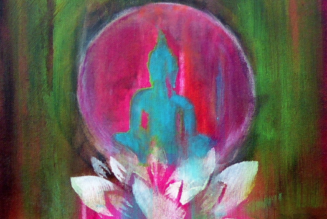What Is Yoga?
Yoga is literally translated as ‘Union’
What does union mean in Yogic context? Yoga is union and means non-duality, oneness! It comes from the Sanskrit root “Yuj” which means to join. Yoga is harmony, union, meeting, (connecting) together. We tend to think about Yoga in the term of asanas [postures], but that is not only about that. Yoga is union with the Lord, the Atman which resides in the body, unifies itself with its creator (Lord, God, Supreme Soul or whatever you refer to). Yoga comes in order to help the body and mind focus, and stay firmly established in the self and finally in the Lord. This union mentioned, works also for behavior, daily routine, and all aspects of life. To be established in this oneness, one needs to be equanimate in every situation in life, whether it is favorable to us or not. In that way, union can be there and be preserved.
Where did yoga come from?
Yoga was written in Hindu ancient texts. It has been brought down by Lord Shiva as Yogeshwara (Lord of Yoga), later narrated to an easier language and better understanding by Sri Sage Patanjali in the Patanjali Yoga Sutras. Later books like Hatha Yoga Pradipika and Gheranda Samhita were written.
What are the qualifications of the student?
The student should get the basic understanding that ignorance is a part of life, and it makes him forget that everything in the world is temporary and inconstant. This ignorance is the root of every sorrow! But the seeker should find this knowledge for oneself and understand it. It cannot be purchased from anyone, As Patanjali says: “Atha Yoga nususanam”, now I will only translate to you the way Yoga is, Yoga cannot be forced. Yoga must come from within! As the flesh grows from the inside of us and makes us-us.
Eight Limbs of Yoga – Ashtanga
Yoga is constituted of eight limbs, thus it is called ashtanga.
Ashta = Eight; Anga = Limb
The eight limbs of Yoga are:
1. Yama [ethics]
2. Niyama [virtues]
3. Aasana [postures]
4. Pranayama [conscious breath regulation]
5. Pratyahara [bringing awareness within]
6. Dharana [one-pointedness of mind]
7. Dhyana [contemplation]
8. Samadhi [harmonious union]





![Female Health: Amenorrhea [cessation of menses] – An Ayurvedic Perspective](https://healthyayurveda.com/wp-content/uploads/2015/07/1.-Amenorhea--327x219.png)



